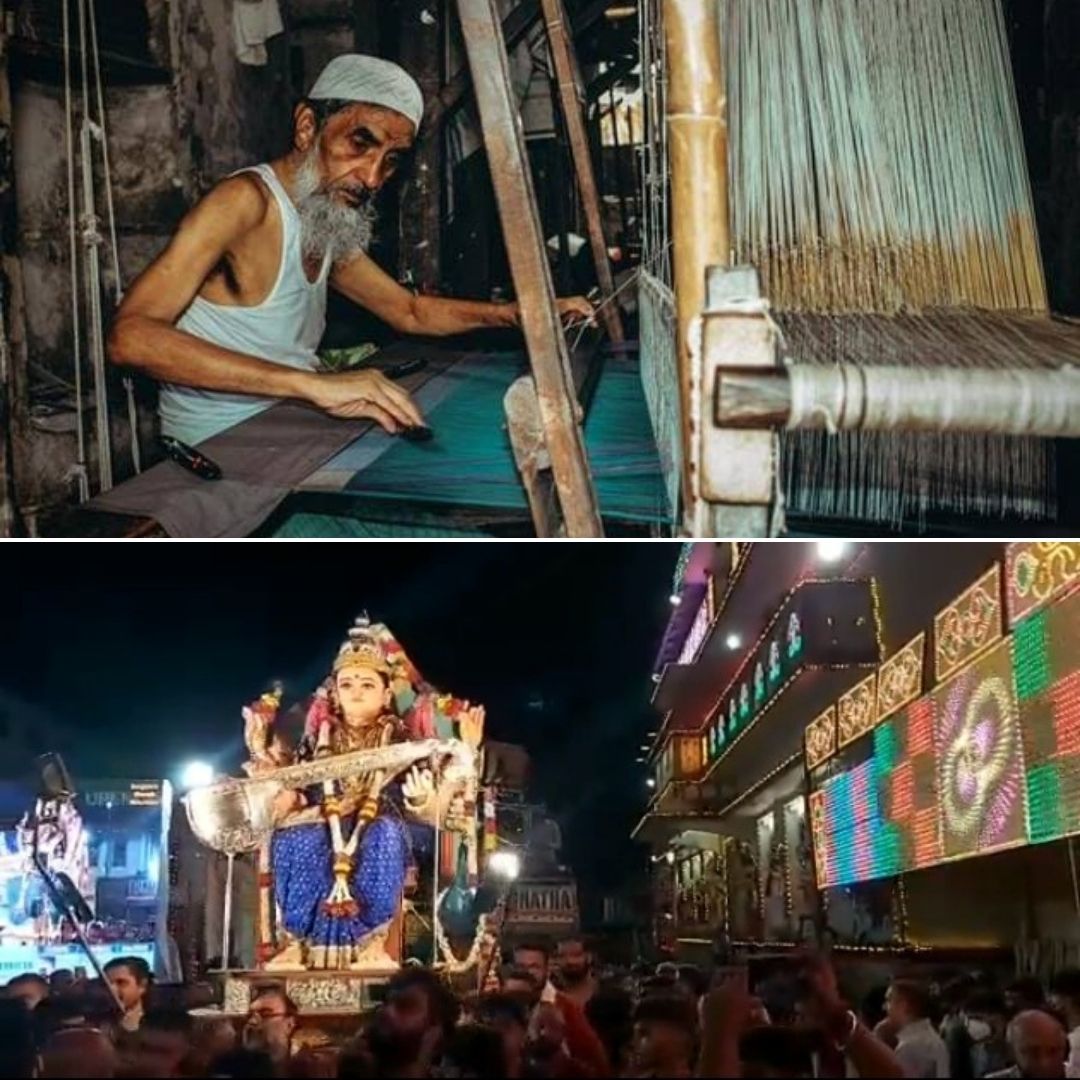This Muslim Family From Gyanvapi Has Woven Sarees For Goddess Sharada For Five Generations, Know More
Writer: Laxmi Mohan Kumar
She is an aspiring journalist in the process of learning and unlearning many things. Always up for discussions on everything from popular culture to politics.
Uttar Pradesh, 23 Sep 2022 6:09 AM GMT
Editor : Snehadri Sarkar |
While he is a massive sports fanatic, his interest also lies in mainstream news and nitpicking trending and less talked about everyday issues.
Creatives : Laxmi Mohan Kumar
She is an aspiring journalist in the process of learning and unlearning many things. Always up for discussions on everything from popular culture to politics.
Amidst the communal tensions caused by the Gyanvapi Mosque case, a Muslim family from there has been weaving the message of communal harmony during every Sharada Mahotsav by adorning the Hindu goddess with the sarees they weave.
The Sharada Mahotsav was started in 1922 to bring together people during the independence movement. From there on, it continued to be a festival that was observed ritually and brought together several different people to be a part of their celebrations.
One such uniting element of the festivities is the saree that adorns the Hindu goddess Sharada. The intricately woven sarees trace back to a Muslim family in Gyanvapi who have been making the sarees for the goddess for over five generations now. In the face of the Gyanvapi Hindu-Muslim rift, this Mahotsav tradition continues to be passed on as a symbol of communal harmony.
Five Generations Symbolising Communal Harmony
The fifth-generation weavers from the Muslim family in Gyanvapi are reportedly engaged in weaving the green silk saree for the centenary year of the Sharada Mahotsav. Celebrated without fail since 1922, the festivities would see the goddess adorned in the Banarasi sari on October 6 for the "Shobhayatre".
As per a report by the Telegraph, the festival that commences on September 26 would have the goddess decorated with the saree on the concluding day of the festival, which is observed a lot more grandly.
The saree is sponsored every year by the Kulyadikars textiles and is usually designed as a Benares silk sari with silver zari. However, ahead of the 100th year celebrations, the silver zari has been replaced by a golden one that costs about eight lakhs in comparison to the normal cost of 2 lakhs and took over six months to be crafted. It would also be embroidered by hand by the weavers.
The Muslim family of weavers that have specialized in Banarasi weaves are the ones who have weaved sarees for most of the temples across the country. Sharada Mahotsav becomes an important observation today due to the parallelly happening communal and religious issues in Gyanvapi.
Muslim-Hindu Rifts Parallelly Happening In Gyanvapi
Gyanvapi Masjid adjacent to the Kashi Vishwanath Mandir in Varanasi was pulled into a controversial legal battle after a Varanasi court directed the Archaeological Survey of India (ASI) to probe the structure of the Masjid.
The roots of the case go back to 1991, when several local priests sought a petition to worship in the Masjid area. They claimed that the place of worship was built in the 17th century under the orders of the then Mughal ruler Aurangzeb by demolishing a part of the Kashi Vishwanath Mandir.
This case, which remained dormant for years, was revived by Varanasi-based lawyer Vijay Shankar Rastogi on December 2019. The case was taken a month after the Supreme Court verdict in Ayodhya's controversial Babri Masjid-Ram Janmabhoomi title dispute.
Amidst the flag marches and disputes, cops were designated to the communally sensitive region to contain the rise of possible riots. From this locality, the Muslim family of weavers religiously weave and embroider the sarees for a Hindu goddess.
Also Read: Hindus Hail Varanasi Verdict To Allow Survey Inside Gyanvapi Mosque
 All section
All section















